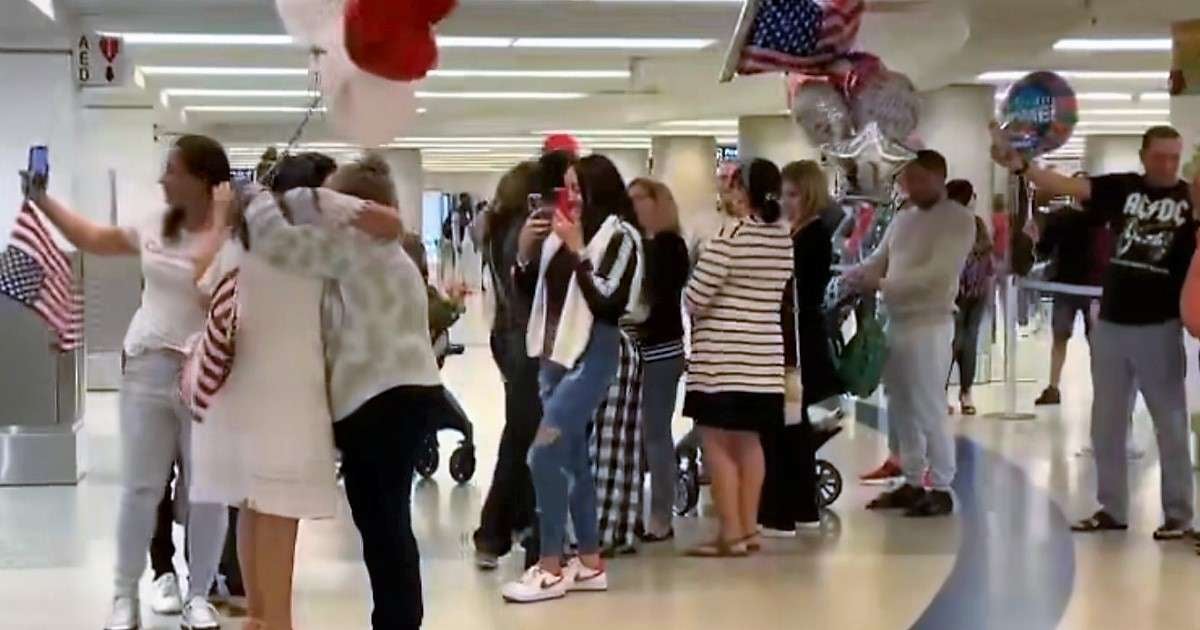"It's like being hit with a bucket of dirty water," expresses Lianet Llanes, a Cuban mother residing in the United States, who has been anxiously awaiting a reunion with her 10-year-old daughter for three years. Her hopes were shattered this Monday, following the implementation of a new Presidential Proclamation by Donald Trump, which halts family reunification processes for Cubans claimed by legal permanent residents, as reported by Telemundo 51.
Signed on June 4th, this executive order is part of a fresh "travel ban" affecting citizens from 19 nations, including Cuba. Although the restriction on Cuban citizens is partial, its ramifications are significant. It freezes tourist, business, study, and exchange visas, in addition to immigration procedures for thousands of Cuban families awaiting reunification.
Postponed Reunions Once Again
Lianet's daughter's case was approved on May 23rd, with only the consular interview pending. "She was a very active child, but after we shared the news, she stopped playing, started learning English, and asked about schools. Two days ago, we had to tell her something was wrong… and since then, she hasn't spoken to anyone," she recounts.
Like Lianet, numerous Cubans are now facing a stalled immigration process, one that has already been lengthy, costly, and emotionally draining. Immigration attorney Willy Allen explained to journalist Daniel Benítez that although administrative processes haven't been officially canceled, claims by permanent residents are caught in a "legal gray area," potentially leading to indefinite suspensions or unclear delays.
Comprehensive Visa Suspension for Cubans
The proclamation signed by Trump halts the issuance of new visas to Cubans in categories B-1 (business), B-2 (tourism), F (studies), M (technical training), and J (cultural exchange). Additionally, it stops immigration processes in family categories that do not qualify as "immediate family" of U.S. citizens:
- Unmarried children over 21
- Married children of any age
- Siblings of citizens
The only exceptions are for parents, spouses, and minor children of U.S. citizens, as well as permanent residents with an already issued green card. Despite the severity of the measure, the State Department clarified via a diplomatic cable signed by Secretary Marco Rubio and obtained by The Associated Press, that visas issued before June 9th will not be revoked. Holders of valid visas can enter the U.S., though final admission is at the discretion of the Department of Homeland Security.
Immigration Limbo Revives Old Traumas
Legal experts justify the tightening of measures due to Cuba's lack of cooperation in repatriations and consular security, as well as its inclusion on the list of state sponsors of terrorism. However, the real impact is felt on a human level, with separated families, emotionally affected minors, and parents facing extended waits to reunite with their children.
Attorney Armando Olmedo, cited by Univision, pointed out that even those with approved visas might face consular hurdles or denials, especially if they have had employment ties with the Cuban government or political affiliations, despite the lack of conclusive evidence.
From Café Fuerte to Martí Noticias, the media has warned that this is the biggest obstacle to legal Cuban migration in four decades. The State Department emphasized that entry into the country, even with a valid visa, is not guaranteed, and immigration officers at entry ports will have greater discretion to accept or reject admission.
Recommendations for Cubans include:
- Checking the validity of their visas
- Maintaining legal status
- Consulting with lawyers for pending processes
- Requesting formal extensions if already in the U.S.
Meanwhile, consulates might adopt stricter interpretations of the rule, further delaying processes for family members claimed by residents.
A Right Turned Privilege
"Today I speak for all those parents who are residents. I'll become a citizen in two years, but that's two more years of suffering waiting for my daughter to arrive," Llanes shares with Telemundo 51. For her and many others, family reunification is not just a bureaucratic procedure but a promise of life once again suspended.
The measure doesn't just halt flights. It stops hugs, first words, shared games, and lost years of childhood. For many Cubans, the American dream now has more barriers than bridges.
Understanding the Impact of Visa Suspensions on Cuban Families
What categories of visas are affected by the suspension for Cubans?
The suspension affects B-1 (business), B-2 (tourism), F (studies), M (technical training), and J (cultural exchange) visa categories for Cubans.
Are there any exceptions to the visa suspension?
Yes, exceptions are made for parents, spouses, and minor children of U.S. citizens, as well as permanent residents with an already issued green card.
